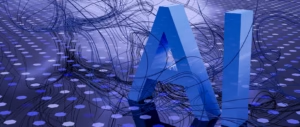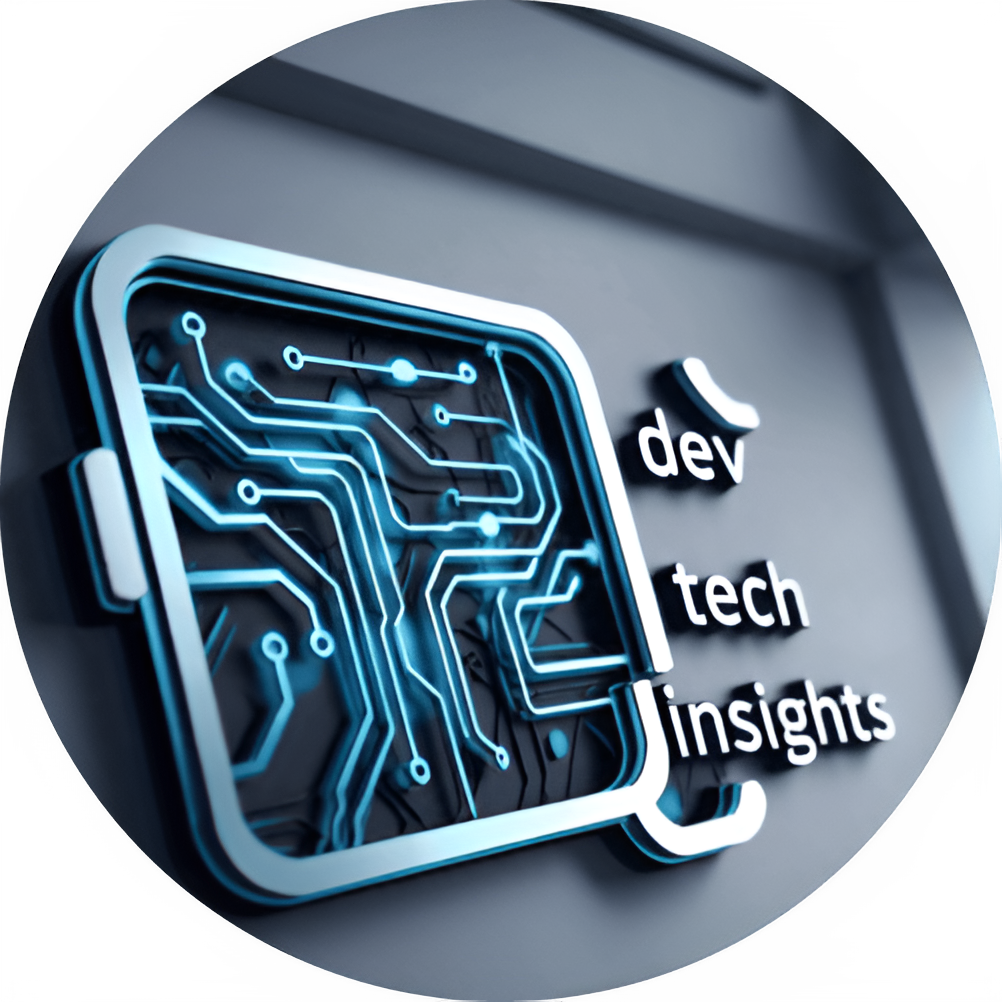
The Rise of AI in Web Development: How Automation is Transforming Jobs|Dev Tech Insights
Introduction to AI in Web Development
The landscape of web development has continuously evolved since its inception, transforming from simple, static pages to complex, dynamic applications that serve millions of users globally. In this evolution, artificial intelligence (AI) has emerged as a pivotal force, offering innovative solutions that enhance the way developers create and maintain websites. The integration of AI technologies in web development reflects not only a technological advancement but also a shift in the dynamics of the industry as a whole.
Historically, web development required a range of specialized skills, from coding languages to graphic design. Developers often relied on manual processes and repetitive tasks, which could be time-consuming and prone to error. With the advent of AI, repetitive tasks such as coding, testing, and data analysis can now be automated, allowing developers to focus on more strategic aspects of their projects. This shift not only streamlines workflows but also increases productivity, making it possible to deliver higher quality projects in shorter time frames.
AI technologies, such as machine learning algorithms and natural language processing, are now being employed to analyze user behavior, suggest design improvements, and even generate code based on existing patterns. Tools incorporating AI functionalities are becoming commonplace, providing developers with valuable insights and automated features that enhance user experience and site functionality. As these technologies continue to evolve, they promise to transform standard practices and offer web developers new opportunities for growth and innovation.
Understanding the significance of AI in web development is crucial for professionals in the field. The ability to harness AI tools not only augments their skills but also prepares them for future industry demands, ultimately reshaping the roles and responsibilities within the web development sector. As automation takes hold, embracing these changes will be essential for web developers aiming to remain competitive and efficient in a rapidly changing environment.
AI Tools Revolutionizing Web Development
The landscape of web development is undergoing significant transformation due to the emergence of various artificial intelligence (AI) tools. These innovative technologies are actively reshaping the way developers approach coding, designing, and testing. By automating routine tasks, AI tools not only enhance productivity but also allow developers to focus on more complex and creative aspects of their work.
One of the notable AI tools is the code generator, which assists in creating code snippets or entire applications based on user inputs and requirements. Tools like GitHub Copilot leverage machine learning algorithms to suggest code in real-time, enabling developers to write more efficiently. These code generators analyze vast amounts of programming data to provide context-aware suggestions, reducing the turnaround time for development tasks. This results in fewer manual coding errors and expedites the overall development cycle.
Additionally, design automation tools are gaining traction in the web development realm. Platforms such as Wix and Squarespace incorporate AI-driven solutions that facilitate website creation with minimal manual intervention. These tools allow users to input their business needs, and in response, they provide tailored design templates. This not only accelerates the design process but also democratizes web development, making it more accessible to non-technical users.
Moreover, intelligent testing platforms are revolutionizing the quality assurance process in web development. AI-powered testing tools automate repetitive testing scenarios, enabling developers to identify bugs and performance issues more efficiently. By employing machine learning to analyze user interactions, these platforms can predict potential problem areas, thus enhancing the user experience. They reduce the need for manual testing, allowing developers to concentrate on improving application features and performance.
Overall, the integration of AI tools in web development is paving the way for a more streamlined and innovative approach to creating digital solutions. As automation continues to advance, developers will find themselves equipped with increasingly powerful tools that reshape their roles and responsibilities in the industry.
The Impact of AI on Job Roles in Web Development
The integration of artificial intelligence (AI) in web development is reshaping traditional job roles, significantly influencing the nature of tasks that professionals undertake. As automation technologies advance, several routine activities such as coding, testing, and deployment are increasingly being managed by AI-driven tools. This trend not only streamlines workflows but also raises questions about the future demand for specific job positions within the industry.
One of the most notable impacts of AI is the potential obsolescence of certain roles, particularly those that focus heavily on repetitive tasks. For instance, entry-level positions such as junior developers may face reduced opportunities as automation takes over basic coding functions. However, while some roles may diminish, others are likely to emerge. Web development is evolving to require skill sets that encompass not just traditional programming knowledge but also abilities in working with AI technologies, data analysis, and machine learning. Consequently, job descriptions are adapting to reflect these new expectations, emphasizing the need for continuous learning and adaptability.
The importance of soft skills cannot be understated in this evolving landscape. Collaboration, communication, and problem-solving skills are being highlighted as essential, as developers are now required to work alongside AI systems and integrate them into their projects effectively. As the demand grows for developers who are proficient in AI-related technologies, educational institutions and training programs may need to adjust their curricula to equip future web developers with the necessary tools and knowledge to thrive in this changing environment.
Overall, the rise of AI in web development signifies a paradigm shift in job roles and responsibilities, urging professionals to embrace lifelong learning and adaptation to maintain relevance in an increasingly automated world.
Adapting to Change: Upskilling for the Future
The rapid advancement of artificial intelligence (AI) in web development is reshaping the industry and presenting both challenges and opportunities for professionals in the field. As AI technologies become increasingly integrated into development processes, web developers must prioritize upskilling to remain relevant and competitive. Continuous learning will empower developers to harness the advantages of AI, such as automation, improved user experiences, and enhanced efficiency.
To successfully navigate this evolving landscape, web developers should focus on acquiring new skills and knowledge in key areas. One essential aspect is familiarization with AI integration. Understanding how AI can be implemented in web applications enables developers to create more intelligent solutions. This can include exploring APIs or machine learning libraries that facilitate the incorporation of AI-driven functionalities.
Moreover, machine learning expertise is invaluable as it allows developers to build sophisticated applications capable of adapting to user behaviors and preferences. Resources such as online courses, coding bootcamps, and literature focusing on machine learning principles are excellent starting points for individuals seeking to deepen their understanding in this area. Platforms like Coursera, Udacity, and edX offer structured learning that can help developers gain foundational knowledge and practical experience.
Advanced programming techniques are equally important, as they can provide insights into optimizing code for performance and scalability when leveraging AI systems. Developers should familiarize themselves with modern programming languages and frameworks that align with AI technologies. Engaging with community forums, attending workshops, or participating in hackathons can foster collaboration and promote skill-building.
In conclusion, adopting a proactive approach toward upskilling allows web developers to adapt to the changing landscape of their industry. By embracing continuous learning in areas like AI integration, machine learning, and advanced programming, developers can position themselves at the forefront of this transformation and contribute effectively to the future of web development.
Real-World Examples: Companies Embracing AI in Web Development
Numerous companies have recognized the transformative potential of artificial intelligence (AI) in web development, implementing various applications to enhance their processes. One such example is Wix, a popular website building platform that utilizes AI through its Wix ADI (Artificial Design Intelligence). This tool streamlines website creation by generating personalized websites based on user input and preferences. By automating the design process, Wix enables users with little to no technical expertise to craft professional-looking websites, significantly reducing the time spent on initial site setup.
In the realm of e-commerce, Zalando, a European fashion retailer, has integrated AI to offer personalized shopping experiences. By analyzing user behavior and preferences through machine learning algorithms, Zalando provides tailored product recommendations and improved search capabilities. This AI-driven approach not only enhances customer satisfaction but also boosts conversion rates by presenting users with relevant items based on their browsing history.
Another compelling case is Spotify’s use of AI for website optimization and user engagement. Spotify employs machine learning algorithms to analyze user data and tailor content recommendations, enhancing the overall user experience. By leveraging AI for dynamic content updates, Spotify can consistently engage users with personalized music playlists, which has proven effective in maintaining user retention.
While these companies have effectively embraced AI, they encountered challenges during implementation, including the need to adapt existing workflows and ensuring data privacy and security. Companies faced the predicament of integrating AI solutions with their pre-existing systems while training staff to effectively utilize these technologies. Despite these hurdles, the outcomes have proven beneficial, with increased efficiency, enhanced user experience, and elevated innovation. These real-world examples underline the pivotal role of AI in redefining web development processes and highlight the necessity for companies to adapt to remain competitive in an increasingly digital landscape.
Ethical Considerations and Challenges of AI in Web Development
The integration of artificial intelligence (AI) in web development brings a host of ethical considerations that necessitate thorough examination. One of the primary concerns surrounding AI and automation is job displacement. As AI technologies evolve, they increasingly assume tasks traditionally performed by human developers. This shift raises important questions about how to manage workforce changes, including potential mass unemployment for entry-level positions in web development. It is crucial for industry leaders to create strategies that not only incorporate AI but also provide avenues for reskilling and upskilling existing workers, ensuring a harmonious transition in the job market.
Another significant ethical issue pertains to the transparency of AI algorithms. The decision-making processes embedded within AI tools can often be convoluted, leading to a lack of understanding of how specific outcomes are reached. This opacity can result in unintended biases, impacting the way web development projects are conducted. To mitigate these risks, organizations must prioritize ethical AI practices that include transparent algorithmic processes. This transparency allows for greater scrutiny and promotes trustworthiness in technologies utilized for web services. By being mindful of how AI systems make decisions, developers can foster a sense of accountability and ensure that AI deployment aligns with ethical standards.
Furthermore, promoting diversity and inclusion within AI development teams is of utmost importance. The perspectives and experiences of diverse teams cultivate better AI products, enhancing their effectiveness and reducing potential bias. A homogeneous team may inadvertently perpetuate existing societal inequalities through the algorithms they create. Consequently, fostering diverse teams not only aligns with ethical practices but also enriches the quality and applicability of AI solutions in web development. By weaving together the importance of transparency, job security, and diversity, the web development community can better navigate the challenges posed by AI technologies, harnessing their potential while upholding ethical integrity.
The Future of Web Development in an AI-Driven World
As we delve into the rapidly evolving landscape of web development, it is evident that artificial intelligence is playing a pivotal role in transforming the nature of this profession. The integration of AI technologies has reshaped workflows, allowing for greater efficiency and innovation. Automation tools are increasingly being utilized to handle repetitive tasks, thus freeing developers to focus on more creative and complex aspects of website creation. This shift not only streamlines processes but also enhances the overall quality of web projects.
However, the rise of AI in web development does not come without its challenges. Professionals in this field may find themselves navigating a highly competitive employment landscape, as certain tasks become automated. Yet, this transformation is not merely a threat; rather, it presents a unique opportunity for individuals to expand their skillsets. By embracing AI-driven solutions, web developers can leverage new technologies to enhance their service offerings, further adapting to the demands of an ever-changing market.
Moreover, the future will likely see an ongoing demand for human insight and creativity that AI cannot replicate. While automation is set to handle essential tasks more efficiently, nuanced decision-making, empathy, and innovative problem-solving will remain the exclusive domain of humans. Hence, as web development continues to intertwine with AI, professionals who are adept at utilizing these tools while maintaining their unique, creative contributions will thrive.
In summary, the convergence of AI and web development heralds an era rich with possibilities. Professionals must view these changes as a springboard for growth, allowing them to adapt and innovate in their careers. As we advance into this AI-driven future, the opportunities for advancement, creativity, and transformative impact within the web development realm are substantial. The key lies in evolving alongside these technologies, ensuring that the human element remains at the forefront of digital innovation.For best Services and Web developments Project,Mark WEB AI is best service providing Company.







